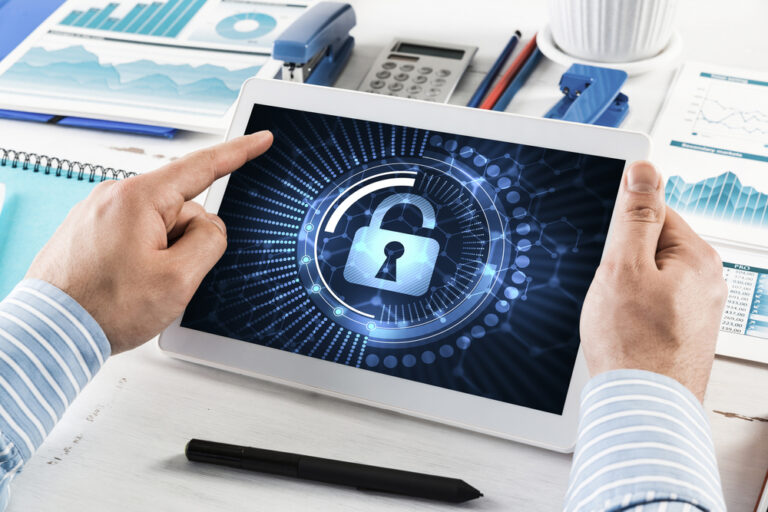Endpoint Security in the Age of Remote Work With ADS
The one thing all organizations have in common now is a reliance on computers. Our laptops, tablets, and smartphones contain vital or confidential information, so it only makes sense to keep them as secure as possible.
Wi-Fi, Bluetooth, mobile networks, and USB connections are vulnerable to malware. Outdated operating systems have security breaches, and Wi-Fi networks are a common point of weakness. Although computers and mobile devices require security protection, you can and should take reasonable precautions to protect your information. At Atlantic Data Security, we offer in-depth defense strategies and management for companies and workers across the globe.
What Is Endpoint Security?
Endpoints are the devices that individuals use to interact with data and the internet, such as laptops, tablets, and smartphones. Endpoint security is the practice of securing those devices. Endpoints are the gateways to an organization’s network and data, and securing them is critical in preventing cyberattacks. This involves a range of measures, including antivirus software, firewalls, intrusion detection and prevention systems (IDS/IPS), and endpoint detection and response (EDR) solutions.
Why It Matters
Remote work has become popular, and the COVID-19 pandemic has only accelerated its adoption. With remote work, employees access company data and networks from their personal devices, which may not have the same level of security as corporate devices. As a result, endpoints have become a prime target for cyberattacks.
The lack of visibility and control over endpoints in remote work environments makes it challenging for organizations to detect and respond to cyber threats. Cybercriminals can exploit vulnerabilities in endpoint security to gain access to sensitive data, steal credentials, and launch ransomware attacks. At ADS, our goal is to stay one step ahead and keep you and your company safe from attacks.
Remote work environments pose unique challenges for endpoint hardening, another term for keeping endpoints secure. Employees may use public Wi-Fi networks, which are not protected, to access company data and networks. Public Wi-Fi can be easily compromised, enabling hackers to intercept data transmitted over the network. Home Wi-Fi networks are often not as thoroughly protected as corporate networks, leaving them vulnerable.

Steps to Protect Your Endpoints
To keep your data and your employees as safe as possible, organizations should implement the following best practices:
Step 1 - Implement a Comprehensive Strategy
Organizations should develop and implement a comprehensive endpoint hardening strategy that covers all endpoints, including laptops, smartphones, and tablets. The plan should include measures such as antivirus software, firewalls, IDS/IPS, and EDR solutions. ADS offers many of these solutions as part of our security management services, including firewall management, DDOS Protection, and more.
Step 2 - Use Strong Authentication
Companies should use strategies like multi-factor authentication (MFA) to ensure that only authorized users can access endpoints with sensitive data. MFA adds an extra layer of endpoint hardening by requiring users to provide more than one form of identification, such as a password and a security token. We’ll help you get your MFA set up and manage it for you, keeping confidential information confidential.
Step 3 - Keep Software Up to Date
Organizations should keep their software updated with the latest patches and updates. Unpatched software is a common entry point for cyberattacks, as hackers exploit known vulnerabilities to gain access to endpoints. We’ll manage your firewall and software security packages as part of our managed security services, keeping you on the cutting edge of security.
Step 4 - Provide Training
Companies that offer remote work should provide regular training to employees on cybersecurity awareness. Employees should be aware of the risks of phishing attacks, social engineering, public Wi-Fi security, and other common cyber threats. They should also know how to identify and report suspicious activity.
Step 5 - Use a Virtual Private Network or VPN
Organizations should require employees to use a VPN to access company data and networks. A VPN creates a secure and encrypted connection between the user’s device and the company network, protecting data transmitted over that network.
Hardening endpoints is a critical task in the age of remote work, where employees access company data and networks from their personal devices. Cybercriminals are constantly looking for vulnerabilities in networks to launch cyberattacks, steal data, and disrupt business operations. Organizations should ensure their workforce is well-educated on the risks of Wi-Fi security and phishing and why technology like MFAs and firewalls are necessary.
Why Protect Endpoints With ADS?
At ADS, we have an entire team of cybersecurity professionals ready to help protect your data. We have over 30 years of experience in the security options your company needs, including endpoint hardening, remote management, and remote monitoring. We work with the 3rd party SaaS provider you use to ensure the most comprehensive cybersecurity coverage. We’re proud to be your national cybersecurity experts. Contact us today to learn more.


 Why ADS
Why ADS Executive Team
Executive Team Careers
Careers Certifications
Certifications Application Security
Application Security Cloud Security
Cloud Security Cybersecurity
Cybersecurity Data Security
Data Security Endpoint Security
Endpoint Security Professional Security Services
Professional Security Services Network Security
Network Security Perimeter Security
Perimeter Security Staff Augmentation
Staff Augmentation Training
Training Blog
Blog